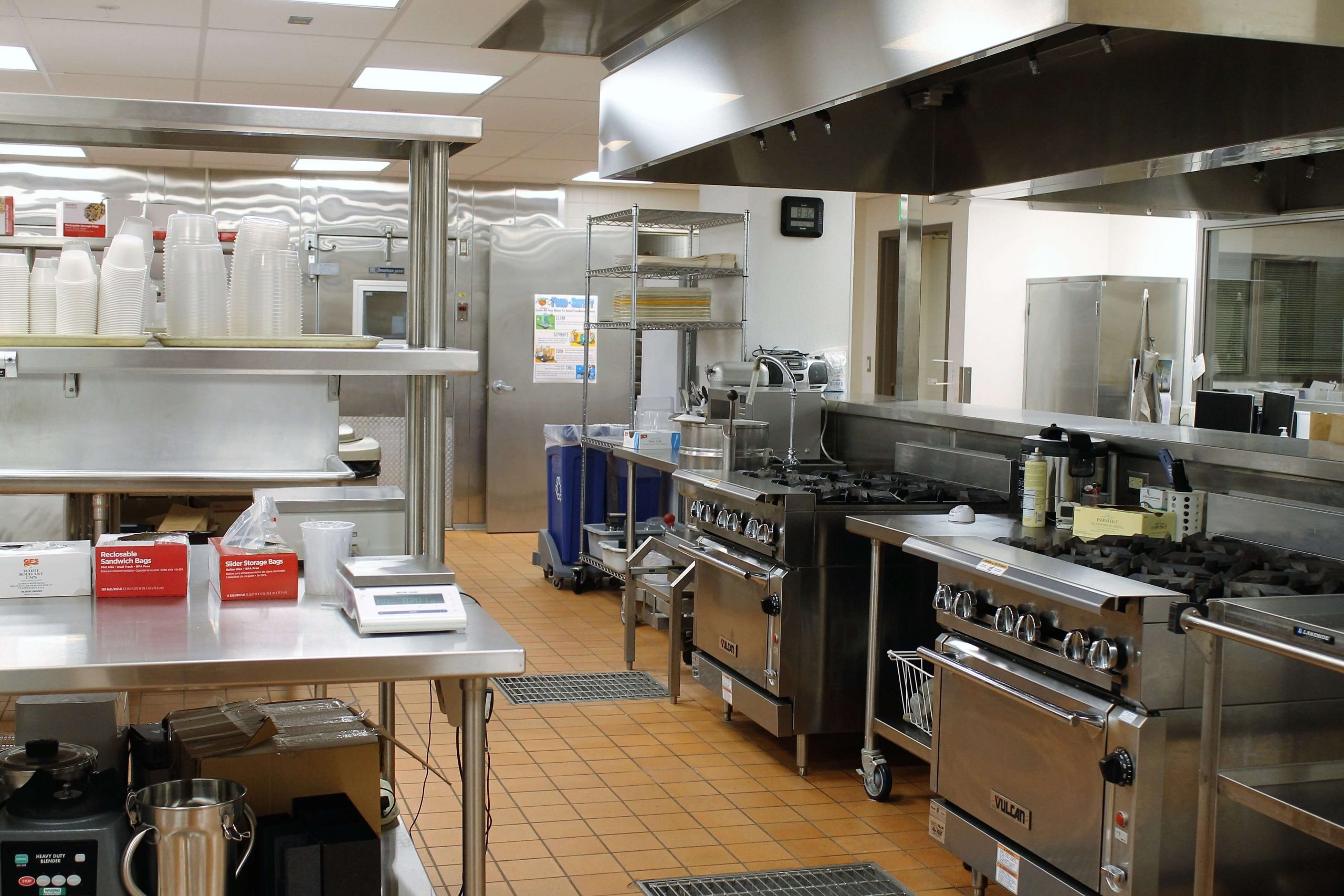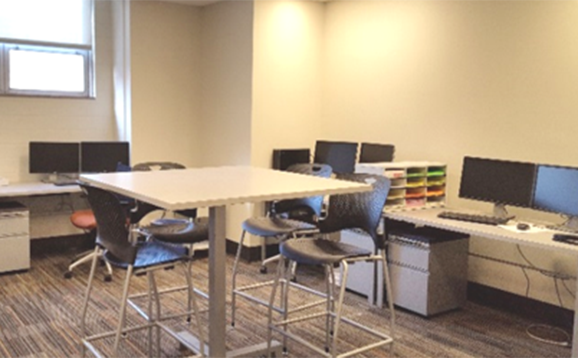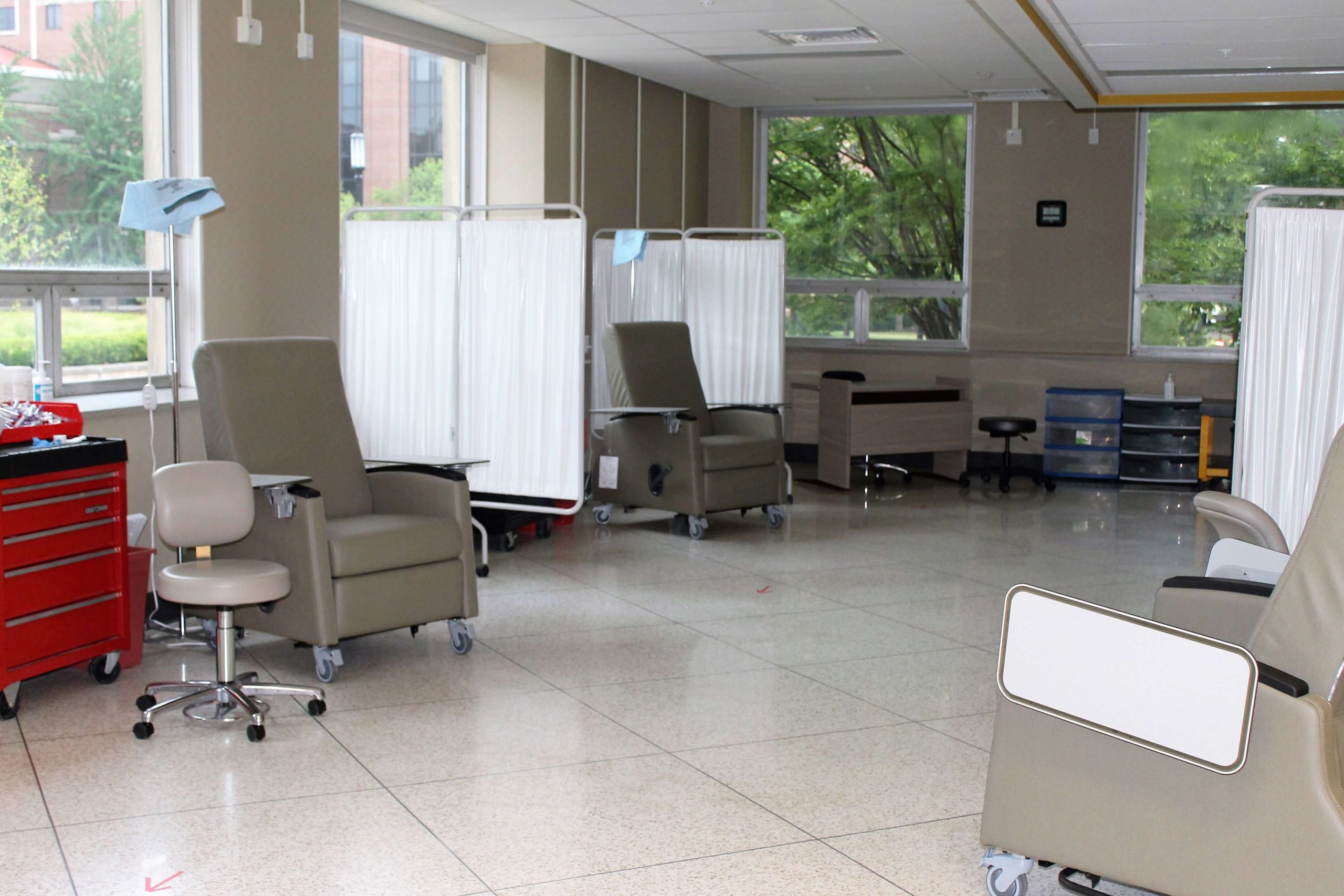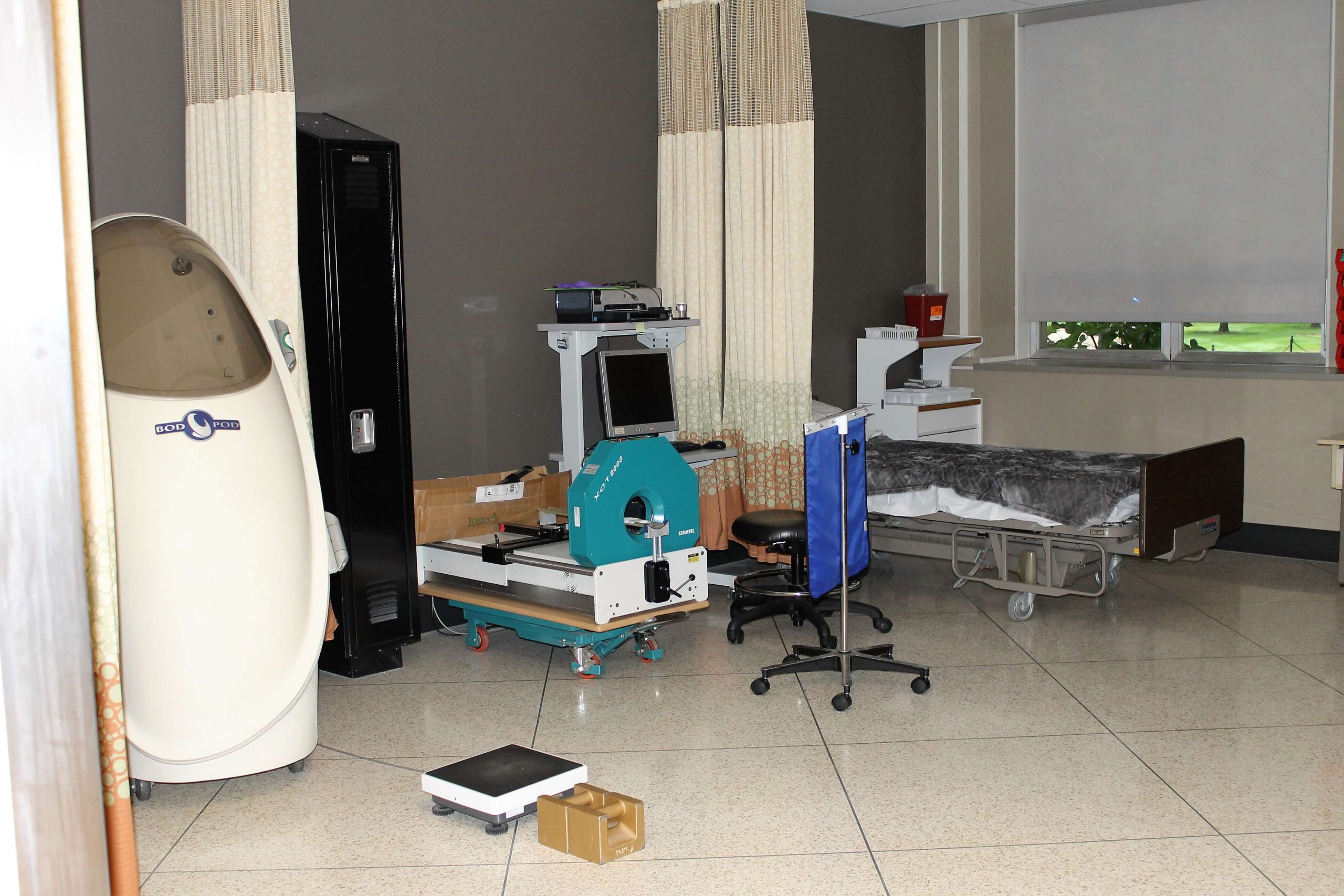Facilities
Purdue Clinical Research Center:
The Department of Nutrition Science houses an NIH-supported Clinical and Translational Sciences Institute (CTSI) center on the Purdue campus that includes Bionutrition and Clinical facilities of 7,024 ft2 for clinical research. These facilities are located in the Stone Hall on Purdue’s campus.
Metabolic Kitchen (2,883 sq. ft).
A fully equipped metabolic kitchen has adequate preparation space, supplies, and storage capacity to prepare in-house and packed-out meals for multiple protocols daily and, typically, prepares over 15,000 meals/year. The kitchen includes several industrial-grade ranges, microwave ovens, upright refrigerators, upright freezers, dishwashers, ice machines, metabolic food scales weighing to 0.1 gram, food homogenization mixers and blenders, several sinks dedicated to food preparation, hand sanitation/dish room cleaning, misc. small equipment for food preparation, storage, and distribution, a walk-in pantry, and walk-in cold and freezer rooms.
There are 2 eat-in dining facilities adjacent to the kitchen which provides the capacity to serve meals for up to 20 people at a time. The facility was designed to support complete dietary control (i.e., in-house breakfast, lunch, and dinner) each day.
The center is staffed with two research dietitians and a Kitchen Technician to assist with all individualized and/or group diet development and meal planning, as well as nutrition counseling and education. In addition, there are dietetic and nutrition science undergraduate students who also assist in diet development, meal preparation, and meal pack-out.



Dietary Assessment Center, DAC (350 sq ft).
The Diet Assessment Center (DAC) provides comprehensive support to investigators who include dietary assessment in their research protocols. Multiple established methods are used to collect and process dietary intake data from participants enrolled in research studies including: dietary recalls and diet record analysis. The DAC staff work with investigators providing guidance and support for research proposals by: assisting with proposal writing, selecting the appropriate methodologies, choosing the most suitable diet outcomes and other variables for analysis, and interpretation of diet and related data. The PDAC is equipped with computers containing NDSR (Nutrition Data System for Research; Minneapolis, Minnesota), headsets, phones, and partitions for dietary assessments and analyses. These include, but are not limited to 24-hour recalls, frequency methods, food records, and food screeners. The center employs a research dietitian.
Human Metabolic Laboratories (2968 sq ft.).
These laboratories are available to collect and analyze a variety of biological measurements and samples, including blood, tissue biopsies, breath, energy expenditure, and anthropometric data. There are two separate laboratories within Stone Hall utilized for metabolic studies and analysis. There is one large subject room with up to 10 reclining phlebotomy chairs with dividers for privacy and confidentiality; a room containing 1 hospital-style bed; 1 MedGraphics indirect calorimetry energy expenditure systems; an electrocardiogram; blood pressure monitors; stadiometer; platform body weight scale; catheterization stations; breath hydrogen analyzer; and biological specimen processing and storage area with refrigerated centrifuge, refrigerator, freezer,-80 freezer, refractometer, and computers. There are also 5 furnished interview/clinical/office rooms and a waiting room to check-in, schedule appointments, consent, etc. The center also employs a clinical manager to perform all human clinical testing.


Bone & Body Composition Suite (823 sq. ft.)
The laboratory suite contains a dual-energy x-ray absorptiometry (GE/Lunar Prodigy DXA) and a micro-CT for various bone and body composition imaging.

